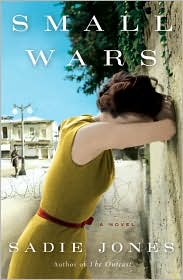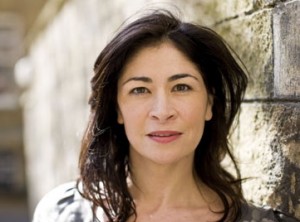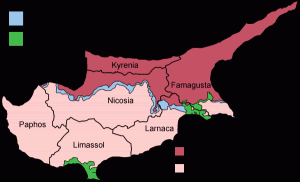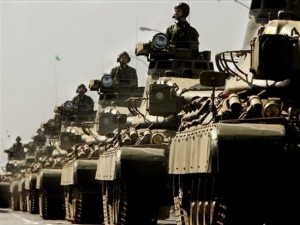“There was no truth. This was a nothing, laughable Mickey Mouse conflict…a sinister time of terror and repression. The British were misguided and ignorant; the Cypriots were lethargic and foolish. The Cypriots loved the British; the Cypriots hated the British. The British were torturers; the British were decent and honorable. EOKA were terrorists; EOKA were heroes. There was no heart to it.”
The waning d ays of the British Occupation of Cyprus were times filled with revolutionary zeal and guerilla attacks by Cypriots demanding independence. For the British, Cyprus represented one of the last colonies in the Empire, and they believed that its loss at the hands of “a few insurgents” would cause further damage to Britain’s waning international prestige. By January 1956, the British and the Cypriots were in their third year of a terrorist “Emergency.” Using every tactic imaginable, the insurgents were constantly on the attack. The British actually had to go so far as to attach vertical poles to the bumpers of their jeeps to break piano wire that insurgents stretched across roads in an effort to behead British soldiers. The civilian wives and children of British officers were not safe, either. Bombs were lobbed into their homes, and the local police station in Limassol was burned.
ays of the British Occupation of Cyprus were times filled with revolutionary zeal and guerilla attacks by Cypriots demanding independence. For the British, Cyprus represented one of the last colonies in the Empire, and they believed that its loss at the hands of “a few insurgents” would cause further damage to Britain’s waning international prestige. By January 1956, the British and the Cypriots were in their third year of a terrorist “Emergency.” Using every tactic imaginable, the insurgents were constantly on the attack. The British actually had to go so far as to attach vertical poles to the bumpers of their jeeps to break piano wire that insurgents stretched across roads in an effort to behead British soldiers. The civilian wives and children of British officers were not safe, either. Bombs were lobbed into their homes, and the local police station in Limassol was burned.
Major Hal Treherne, a career soldier from a family of career soldiers, is assigned the job of patrolling villages in the south of Cyprus, conducting searches, and identifying suspects so that they can be turned over to the Special Investigations Branch for interrogation. His wife and 16-month-old twin daughters have just arrived on the island, and lacking quarters on the base, are living among local people in a small house in Limassol, a nearby village–until it becomes far too dangerous an d they move into base housing. A by-the-book officer with deeply held values and a total commitment to his country, Hal has a tough time, emotionally, when some of his overly “enthusiastic” soldiers use their search assignments to avenge themselves on the insurgents by ransacking and destroying homes of possibly innocent citizens. As the Emergency becomes more pressing and hostilities increase, Hal’s wife Clara, a busy mother, is left alone for days on end, with only the other wives and their children for company. Though she loves her husband, she resents his absences and failure to communicate and feels justified in believing that he is more married to his job than to her, a no-win situation for both of them leading to additional misunderstandings and simmering resentments.
d they move into base housing. A by-the-book officer with deeply held values and a total commitment to his country, Hal has a tough time, emotionally, when some of his overly “enthusiastic” soldiers use their search assignments to avenge themselves on the insurgents by ransacking and destroying homes of possibly innocent citizens. As the Emergency becomes more pressing and hostilities increase, Hal’s wife Clara, a busy mother, is left alone for days on end, with only the other wives and their children for company. Though she loves her husband, she resents his absences and failure to communicate and feels justified in believing that he is more married to his job than to her, a no-win situation for both of them leading to additional misunderstandings and simmering resentments.
Author Sadie Jones, who won the prestigious Costa First Novel Award in Great Britain for her previous novel, The Outcast, recreates the “small war” between Hal and Clara Treherne by alternating the points of view. Every atrocity which Hal sees or hears about (and for which he must take some action and responsibility) is matched by a scene from Clara’s life of quiet desperation, and she gradually stops sharing her thoughts with him. Hal faces physically dangerous situations–gun  battles with insurgents, bombings, and life-or-death pursuits through the mountains in an effort to locate guerilla hideaways, but he also faces emotionally and intellectually challenging situations within the structure of the military itself. Hal, a man with a conscience, is appalled by the torture of young teenagers by the Special Investigations Branch in an effort to gain information from them. Water-boarding is common, as are beatings, and maimings. (“It isn’t an extreme method of interrogation to nearly drown a man if you are saving lives,” one officer declares.) When a military interpreter tells Hal about three soldiers he has seen committing rape and a cold-blooded execution–war crimes–Hal follows procedure–and then learns that things are not as clear-cut as he has always believed. “Naked corpses with their hands cut off, vichyssoise for lunch, rumours of a new governor, the illegal torture of a teenage boy–if you reflected on it, thought Hal, one topic was pretty much like any other.” Eventually, Hal and Clara must examine their consciences to see if they have a shared destiny.
battles with insurgents, bombings, and life-or-death pursuits through the mountains in an effort to locate guerilla hideaways, but he also faces emotionally and intellectually challenging situations within the structure of the military itself. Hal, a man with a conscience, is appalled by the torture of young teenagers by the Special Investigations Branch in an effort to gain information from them. Water-boarding is common, as are beatings, and maimings. (“It isn’t an extreme method of interrogation to nearly drown a man if you are saving lives,” one officer declares.) When a military interpreter tells Hal about three soldiers he has seen committing rape and a cold-blooded execution–war crimes–Hal follows procedure–and then learns that things are not as clear-cut as he has always believed. “Naked corpses with their hands cut off, vichyssoise for lunch, rumours of a new governor, the illegal torture of a teenage boy–if you reflected on it, thought Hal, one topic was pretty much like any other.” Eventually, Hal and Clara must examine their consciences to see if they have a shared destiny.

This very readable, fast-paced narrative includes action scenes so vivid they sometimes resemble films. Hal’s life is one emergency after another, one battle after another, one moral quandary after another, and the reader quickly identifies with him in his emotional turmoil. Clara, on the other hand, never quite seems to “get it,” and though her conflicts with Hal are understandable and she does gain some sympathy, she also seems to lack perspective, coming across as self-indulgent. Her behavior toward Hal after she and the babies are moved to Nicosia for safety is particularly hard to condone. The ending, instead of evolving directly from the action, seems grafted onto the novel as the characters make some surprising decisions, and some readers may feel that this ending is unrealistic, considering the characters’ past actions. Overall, however, the novel is absorbing and thoughtful, filled with vividly descriptive scenes from a part of the world which has received little attention from western writers.
Notes: The author’s photo by David Levenson/Getty appears on http://www.guardian.co.uk
The map of divided Cyprus is from http://vsotirovic.home.mruni.eu The dark red area is administered by Turks, and the pink area by the Greeks. The green is the UK Sovereign Base Area.
Greek Cypriot soldiers stand on French-made AMX-30 tanks during the annual Cyprus Independence Day military parade in the divided capital of Nicosia, Monday, Oct. 1, 2007. Cyprus gained independence from Britain in 1960. http://www.militaryphotos.net
